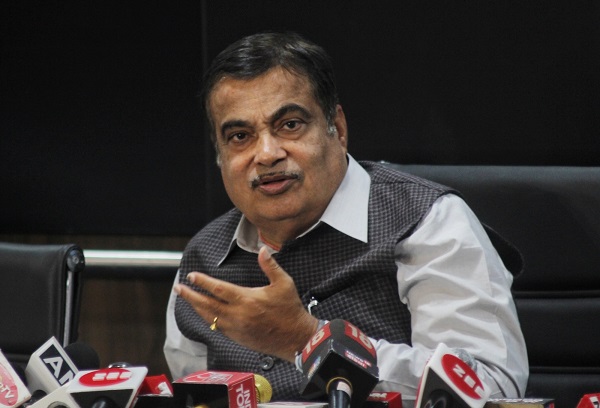Gurugram, (Samajweekly) Union Road Transport and Highways Minister Nitin Gadkari, who was scheduled to review the progress of the Delhi-Mumbai Expressway project later this week, has postponed his visit due to the rising number of coronavirus cases in Haryana.
The visit, which was intended to review the ongoing work of the Expressway in Haryana’s Nuh district, was scheduled to take place on Thursday.
“Due to the rising number of Covid-19 cases, media tours scheduled for April 8 and April 9 for inspection of sites by Nitin Gadkari on Delhi-Mumbai Expressway stands postponed,” a district spokesperson said in a statement.
The foundation stone for the project was laid in March 2019.
The 1,250 km long Expressway to pass through Haryana, Rajasthan, Madhya Pradesh, Gujarat and Maharashtra will cut the travel time between Delhi and Mumbai by 13 hours from 24 hours.
Recently, the National Highways Authority of India (NHAI) had claimed in a statement that a section of the Expressway will be operational in the second half of 2022.
It is expected that the proposed 12-lane expressway will ease traffic congestion on Pune-Mumbai Expressway and other highways as well besides bringing down vehicular pollution in the national capital.
The total estimated cost of the Delhi-Mumbai Expressway project is about Rs 87,453 crore, including land acquisition cost of about Rs 20,589 crore.
The carriageway will run parallel to the Delhi-Alwar route in Haryana and will exit the state at Kolgaon.
In Rajasthan, the Delhi-Mumbai Expressway will pass through Bharatpur, Malakhera, Rajgarh, Jaipur, Sawai Madhopur, Indragarh, Kota and Rawatbhata. In Madhya Pradesh, it will cross Bhanpura, Garoth, Neemuch, Mandsaur, Jaora, Ratlam and Thandla. In Maharashtra, the Expressway will pass through Thane and Palghar before ending in Mumbai.
The upcoming Expressway will have India’s first animal bridges. These will be designed to keep the wildlife unaffected from the new infrastructure. There will be around five such bridges, passing through the Ranthambore wildlife corridor and the Mukundra wildlife sanctuaries in Rajasthan.
Also, the toll collection on the stretch will be through Radio Frequency Identification (RFID) technology.
Download and Install ‘Samaj Weekly’ App
https://play.google.com/store/apps/details?id=in.yourhost.samajweekly









